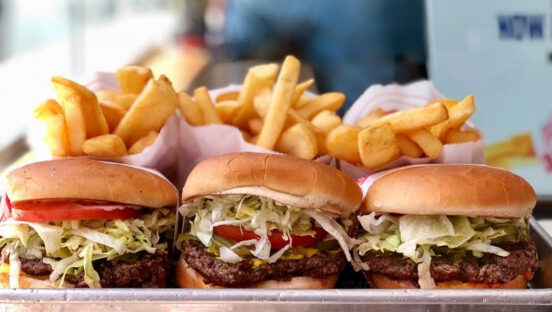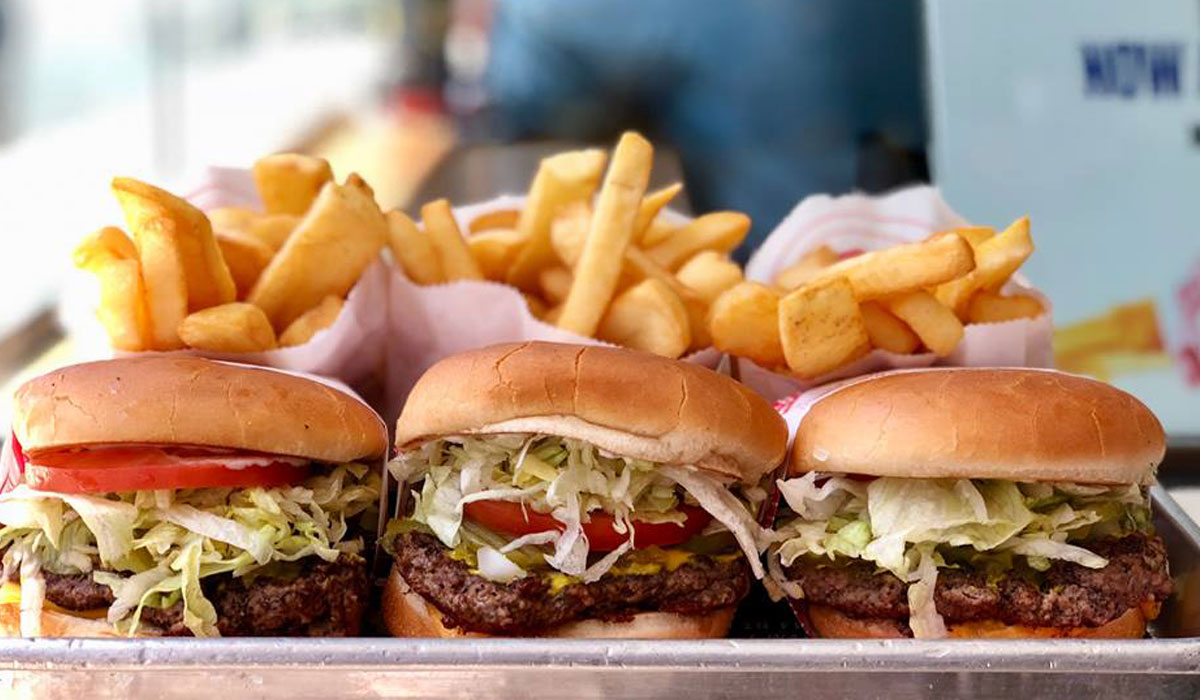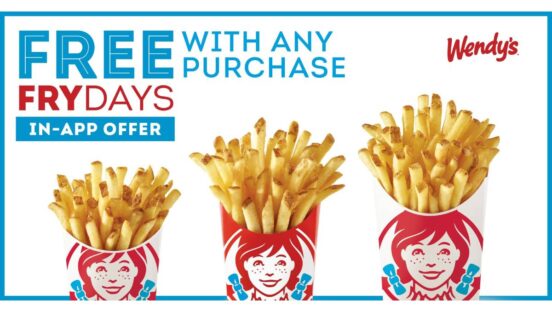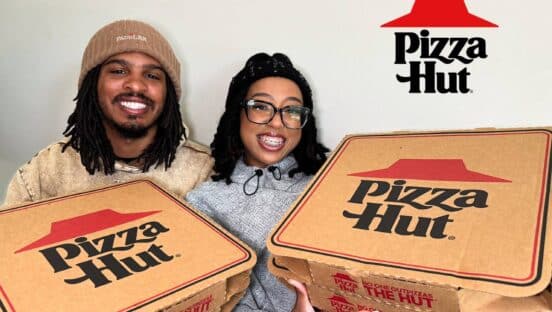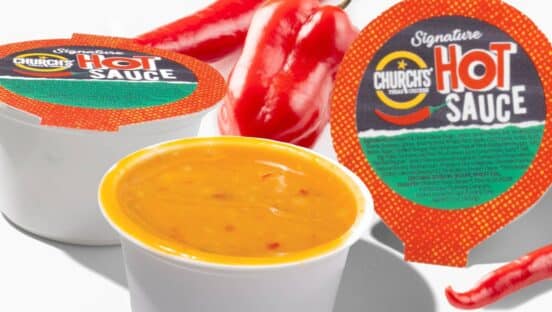Fatburger parent FAT Brands is seeking to bolster its portfolio.
CEO Andrew Wiederhorn said during the company’s Q4 earnings call Monday that FAT Brands has identified targets and undergone “extensive negotiations.” Although no deals are binding yet, Wiederhorn hopes to complete at least one acquisition in Q1 and two or three by the end of 2020.
FAT Brands is looking for characteristics such as established, widely recognized brands; steady cash flows; track records of long-term, sustainable operating performance; good relationships with franchisees; sustainable operating performance; geographic diversification; and growth potential.
Wiederhorn explained that valuations are lower amid the pandemic, meaning FAT Brands is getting more flexibility from potential sellers. He said the company has seen an “awful lot of deals” in the past six weeks.
“I’m trying to be cautious about valuations and cautious about the mechanism to make an acquisition, so that there’s a little bit of a formula involved that we’re not setting 100 percent of the price today without some sort of earn-out along the way that could be adjusted,” Wiederhorn said. “If the brand does better, great. If the brand doesn’t do as well, … then our purchase price is reduced, and therefore, we’re not having to take on all that risk. So there’s definitely stuff to happen.”
Right now, the company oversees and franchises 375 units across eight companies: Fatburger, Buffalo’s Cafe, Buffalo’s Express, Hurricane Grill & Wings, Elevation Burger, Yalla Mediterranean, and Ponderosa and Bonanza Steakhouses.
FAT Brands mostly recently purchased 44-unit Elevation Burger in June 2019 for $10 million.
Many offers have a high concentration of company-owned units, but FAT Brands would look to refranchise those stores upon acquisition, Wiederhorn said. The CEO listed burger and chicken brands as desirable and noted the company isn’t looking to add any more steakhouses.
“The burgers and the wing space are very good for us,” Wiederhorn said. “So I think there’ll be opportunities there. We don’t have a pizza chain yet. We don’t have a salad chain or coffee dessert, sandwiches like I’ve said before. Those will all make sense, but I feel like in this environment, we know what to do with the brands we have and brands that are similar like that will be the better acquisition candidates than just buying anything that comes along. Capital is very valuable today. We want to really make it work.”
“… The platform is well-positioned to make acquisitions,” he continued. “That’s the whole point of getting this platform to this scale, and now financing is in place to do that. So this is our time, for sure.”
Due to the pandemic, FAT Brands closed about 150 units, mostly among the Fatburger restaurants located in casinos and steakhouses. Across the burger brands, which account for half of revenue, comp sales were down 28 percent. At casual-dining brands, same-store sales declined 65 percent. Wiederhorn expects those numbers to improve rapidly as more states allow the reopening of dining rooms.
Wiederhorn acknowledged the possibility of losing five to 10 units because of the pandemic.
“Everyone will lose some stores,” Wiederhorn said. “I don’t think it’s going to be a huge number. … And generally, if we lose any units, they were probably the … lower contributors in terms of high average volumes and high royalties. … So if the store is closing, it probably wasn’t doing that well to start with, and just didn’t have the sustaining power here, but I don’t expect to lose a lot.”
Wiederhorn said that in the past, FAT Brands has acquired closed franchise locations and then resold them to new franchisees. There’s a chance the company may do that in this case, but there’s also a scenario where some stores would be let go.
“Either like a really old location where the new capital expenditure doesn’t pencil, where the market may have moved if it’s a 30- or 40-year-old location and it was the hotspot at one point, but it’s no longer in the hotspot,” said Wiederhorn, explaining stores that would most likely remain closed. “It may not make sense to acquire that store and refranchise it versus just try to sell a new franchise in that community. So I think there is that chance. We have the liquidity to do it if we need to, but I can’t give you any specifics today.”
FAT Brands laid off 20 percent of its headcount, consisting of nonessential employees who were focused on accelerating growth initiatives.
The company is helping franchisees apply for Paycheck Protection Program loans, negotiating deferred rent with landlords, extending terms with suppliers, and assisting franchisees with securing personal protective equipment.
In fiscal 2019, the brand saw same-store sales decline 0.7 percent systemwide. If excluding the steakhouses, the number jumps to a growth of 0.9 percent. Wiederhorn attributed the weakness of the steakhouses to limited marketing campaigns and expenditures, an issue that FAT Brands hopes can be resolved through a national marketing fund approved by franchisees.
Hurricane’s comps grew 6.4 percent in 2019, which is a significant boost compared to 2018, when same-store sales dropped 4 percent. In Q4, comp sales lifted 8.3 percent.
Wiederhorn still anticipates opening between 25 and 40 stores in 2020, after opening 11 already this year. Three have been fully built, but are waiting on permits. The company opened a ghost kitchen in Chicago last week.
In early March, FAT Brands completed a whole business securitization that netted $10 million, providing liquidity for the brand as the country entered the pandemic.

